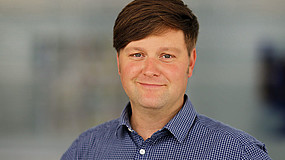This further education series took place at Zittau/Görlitz University of Applied Sciences from 2014 to 2020 in a total of three sessions with participants from all over Saxony. The experience and results gained were incorporated into the curriculum of the Saxon University Didactics Certificate of the Saxon University Didactics Department.
The aim of this further training was to further expand the engineering pedagogical expertise of our university staff in the STEM faculties. The series of events covered all relevant areas of engineering pedagogy as well as the requirements of the Engineering Pedagogy Knowledge Society (IPW) and the International Society for Engineering Pedagogy (IGIP). The further training was designed in cooperation with the Institute for Vocational Education at the Technical University of Dresden and builds on the further training project "Engineering Didactics at Saxon Universities 'e-Didact'" from 2010 to 2013.
In order to create a group-dynamic, peer-group-oriented and effective atmosphere for imparting knowledge and skills, parts of the modules were combined in blocks. These events took place in conference centers.
The Saxon Centre for Higher Education Didactics (HDS) recognized a total of 60 work units of engineering pedagogical training for teachers for Module 2 of the Saxon Higher Education Didactics Certificate.
The last series of events took place from September 2019 to July 2020. The scope of the measure was approx. 200 work units (150 hours).
Kersten, Steffen (2010) Engineering didactics at Saxon universities - A research and further education project of the TU Dresden and the FH Zittau/Görlitz
Köhler, Marcel/Umlauft, Timon/ Kersten, Steffen and Simmert, Hartmut (2013) Project "Engineering didactics at Saxon universities 'e-Didact'"
Version: 0.1 (25.09.2018)
Module coordinator: Dipl.-Berufspäd. Timon Umlauft
The participants know:
The participants are able to
The participants assess
Competence development pyramid
4 AE
Version: 0.2 (20.01.2019)
Responsible for the module: Karl-Heinz Reiche
The participants know:
The participants are able to
The participants assess:
The workshop has two objectives. On the one hand, team development is to be promoted by spending intensive time together. Various activities such as a daily morning round, a hike and special exercises with the coach and martial arts instructor Thomas Hönel support this goal. On the other hand, the aim is to impart background knowledge on the topics of group dynamics and teamwork in order to professionalize your own work with groups and teams.
The following topics are covered: Formation of groups, processes and roles in groups, conflicts and leadership in groups.
In addition, participants have the opportunity to take a free Belbin team role test with self-assessment, external assessment and code self-test in advance. The evaluation takes place in Niedamirow (Polish Giant Mountains) in the conference center.
28 AE
Version: 0.1 (25.09.2018)
Module coordinator: Dipl.-Berufspäd. Timon Umlauft
The participants know:
The participants are able to
The participants assess
16 AE
Version: 0.1 (25.09.2018)
Responsible for the module: Dr. Steffen Kersten
The participants know
basic conditional and decision-making fields for the didactic planning of laboratory work and essential requirements for experiments in the teaching-learning process
Participants are able to
classify experiments under different aspects
The participants know
basic methods of finding knowledge
The participants are able to
The participants assess:
The participants know:
The participants are able to
Blended learning study concept:
16 AE
Version: 0.1 (25.09.2018)
Module coordinator: Dipl.-Berufspäd. Timon Umlauft
The participants know:
Participants are able to
The participants assess
16 AE
Version: 0.1 (25.09.2018)
Module coordinator: Dipl.-Berufspäd. Timon Umlauft
The participants know:
The participants are able to
The participants assess
16 AE
Version: 0.1 (04.12.2018)
Responsible for the module: Daniel Winkler
The participants know:
Participants are able to
The participants assess
Participants receive answers to the following questions: What are creativity techniques and problem-solving methods? What is design thinking? Where does the approach come from? What can design thinking achieve in companies and universities? In addition, they get to know Design Thinking in six steps and apply it to critically scrutinize their own course and explore its potential for improvement:
24 AE
Version: 0.1 (25.09.2018)
Module coordinator: Dipl.-Berufspäd. Timon Umlauft
The participants know:
Participants are able to
The participants assess
16 AE
Version: 0.1 (25.09.2018)
Responsible for the module: Dr. Steffen Kersten
The participants know
basic conditional and decision-making fields for the didactic planning of laboratory work and essential requirements for experiments in the teaching-learning process
Participants are able to
classify experiments under different aspects
The participants know
basic methods of finding knowledge
The participants are able to
The participants assess:
The participants know:
The participants are able to
Blended learning study concept:
16 AE
Version: 0.1 (25.09.2018)
Responsible for the module: Karl-Heinz Reiche
The participants know:
Participants are able to
The participants assess:
A key aim of contemporary didactics is to take account of different personalities and learning styles. A prerequisite for this is being able to describe difference. Psychological personality and role models are an aid to this. Through self-reflection and exercises, the participants first approach their own characteristics and then place them in the context of the group. A model of group dynamics is used to illustrate interpersonal group processes. Further topics include: Body language, voice training, counseling and coaching, resilience and mental hygiene.
24 AE
Version: 0.1 (20.01.2019)
Responsible for the module: Daniel Winkler
Objectives
The participants know:
The participants assess:
The participants are able to
Contents
The learning portfolio is a collection that shows the learning progress and performance level of the participant. The knowledge acquired as part of this series of events should be actively linked and reflected upon.
Method
examination
Duration
16 AE
